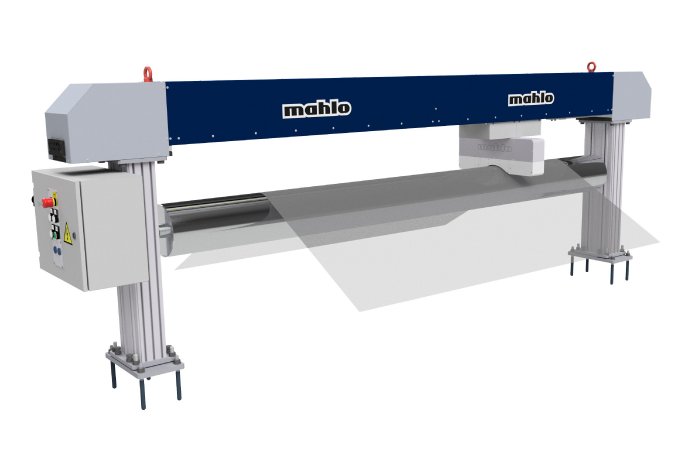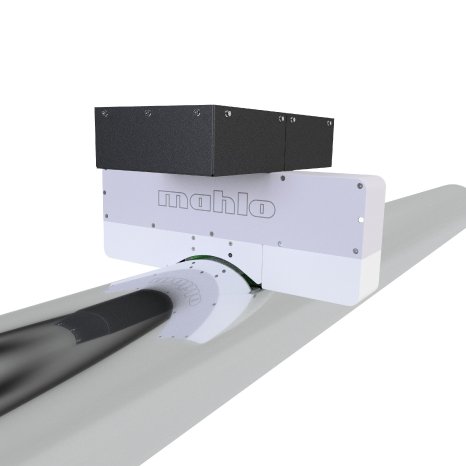An online real time measurement of true web thickness must be obtained to achieve this end. Although measuring by hand by way of random checks is possible, it is usually rather unreliable. The test results may already vary when the angle or pressure of the measuring instrument changes only minutely. Automatic measuring systems on the running product web, as they are produced by the machine builder Mahlo GmbH + Co. KG, are much more reliable. Different sensors are available in connection with the traversing quality measuring system Qualiscan QMS, measuring material thickness during production. The methods used here are quite diverse. The thickness of almost all materials can be calculated with beta, infrared or X-rays, which penetrate the product or are reflected by it. Mahl o has developed a process for thin film utilising white light interference. If white light is reflected by thin layers, this reflection appears coloured like a rainbow. The light is partially reflected, both on the upper and lower interface. The overlaid reflections interfere. This interference is related to the coating thickness and can be measured with a spectrometer.
Solutions for special scenarios
All sensor versions deliver excellent results for their area of application. However, there are situations where they reach their limits. For example, basis weight sensors cannot reliably report the thickness of variable density webs. Laser triangulation is not suitable with transparent or very translucent materials. For these special scenarios, Mahlo has developed a special sensor with the Calipro DMS, which acts largely independently of the material finish, texture and translucency. The combination of eddy current sensor and precision optical sh ading sensor makes the measurement insensitive to conditions such as roller runout and thermal effects.
Principle of operation
A good example for the use of the Calipro DMS is hygiene nonwoven, used for moist cleaning tissue. The nonwoven material, having a structured surface, is coated here with one or several soapy additives. For the final product to fulfil the desired functions, the layers must have the right thickness, of course. When measuring the nonwoven material, the product runs under the sensor with a 60° arc of contact over a reference roller. At the same time, the light of a new-generation precision LED is directed as uniform, parallel light beam onto the nonwoven web. Depending on the material thickness, a certain area is thus shaded at the high-resolution detector. The transition between the bright and dark area at the receiver is detected as the shaded height value. An integrated eddy current sensor constantly measures the current roller position, since minute value deviations occur due to their natural fluctuating movements. The material thickness is finally calculated from the difference of the measured value between eddy current sensor and shading sensor. Further measurements are possible after each additional application in the production line if the values of the individual layers shall be determined. The Calipro DMS can thereby always be installed on a measuring frame or as standalone device.
If the manufacturer is able to check the thickness of the individual coats, he has already established the basis for his success. Only when the exact values are known can they also be correctly controlled thereby optimising the production processes. If, for example, the application of excess quantity is thus prevented, costs and raw materials are saved. The result is a cost-efficient and, at the same time, high quality product that ensures satisfaction for the dealer and customers.




